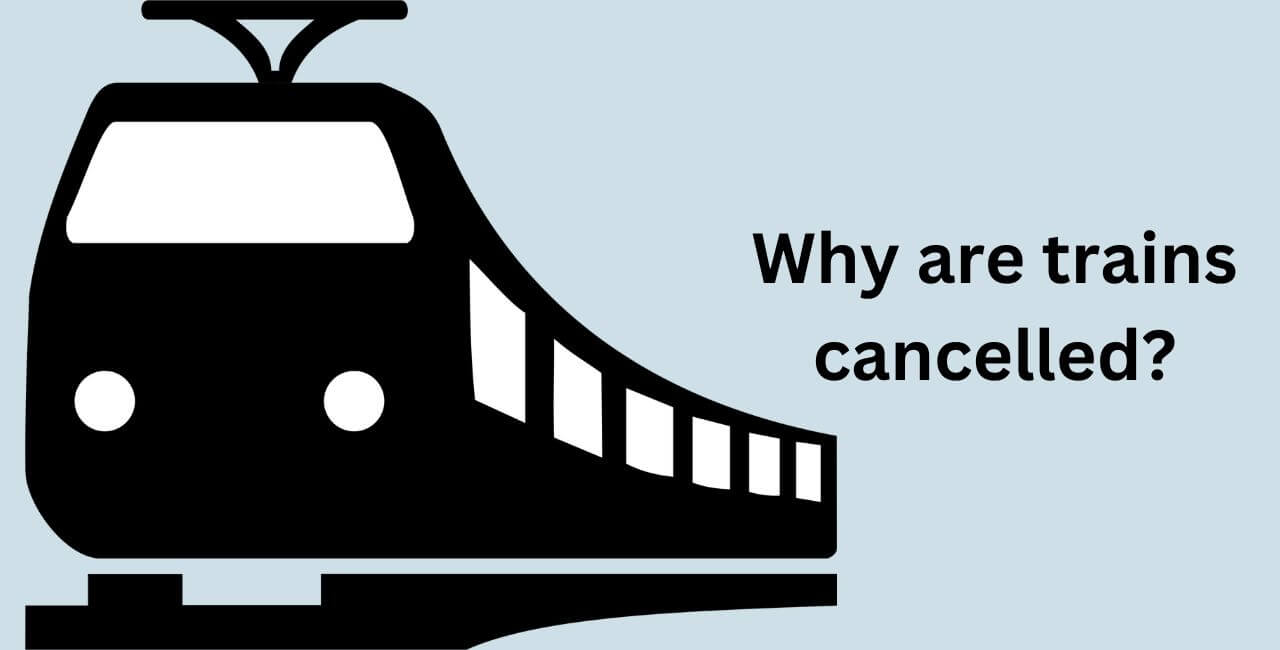Why are trains cancelled? Train cancellations can occur due to various reasons, ranging from operational issues to external factors. Here are some common reasons why trains are cancelled:
Why are trains cancelled?
1. Weather Conditions
- Flooding: Heavy rains and floods can damage railway tracks and bridges, making them unsafe for train operations.
- Fog: Dense fog can reduce visibility, making it dangerous for trains to run, especially at high speeds.
- Snow and Ice: In colder regions, snow and ice can obstruct tracks and switches, causing delays or cancellations.
2. Technical and Operational Issues
- Track Maintenance: Scheduled or emergency maintenance work on railway tracks can lead to the temporary suspension of train services.
- Signal Failures: Malfunctions in the signaling system can disrupt train schedules and lead to cancellations.
- Engine or Coach Issues: Mechanical problems with the locomotive or coaches can render a train unfit for travel.
3. Accidents and Incidents
- Derailments: A train derailment can block tracks and halt services on affected routes.
- Collisions: Accidents involving trains, vehicles, or pedestrians at level crossings can lead to cancellations.
- Fire: Fires on trains or in railway infrastructure can cause disruptions.
4. Security Concerns
- Terror Threats: Threats or actual incidents of terrorism can lead to the cancellation of train services as a precautionary measure.
- Civil Disturbances: Riots, strikes, or protests can disrupt train operations, especially if railway tracks or stations are targeted.
5. Operational Efficiency
- Low Passenger Demand: Trains with consistently low passenger numbers may be cancelled to optimize resources and operational efficiency.
- Crew Availability: Shortages of qualified train crew members (drivers, guards, etc.) can lead to cancellations.
6. Natural Disasters
- Earthquakes: Earthquakes can damage railway infrastructure, making it unsafe for trains to operate.
- Landslides: Landslides can obstruct tracks, especially in hilly or mountainous regions.
7. Government Directives
- Policy Changes: Government decisions, such as lockdowns during the COVID-19 pandemic, can lead to widespread train cancellations.
- Special Events: Trains may be cancelled or rerouted for large-scale events like political rallies or religious gatherings.
Summary
Train cancellations can result from a variety of factors including adverse weather conditions, technical issues, accidents, security concerns, operational decisions, natural disasters, and government directives. Each of these reasons is aimed at ensuring the safety of passengers and railway personnel, maintaining the integrity of railway infrastructure, and optimizing operational efficiency.
